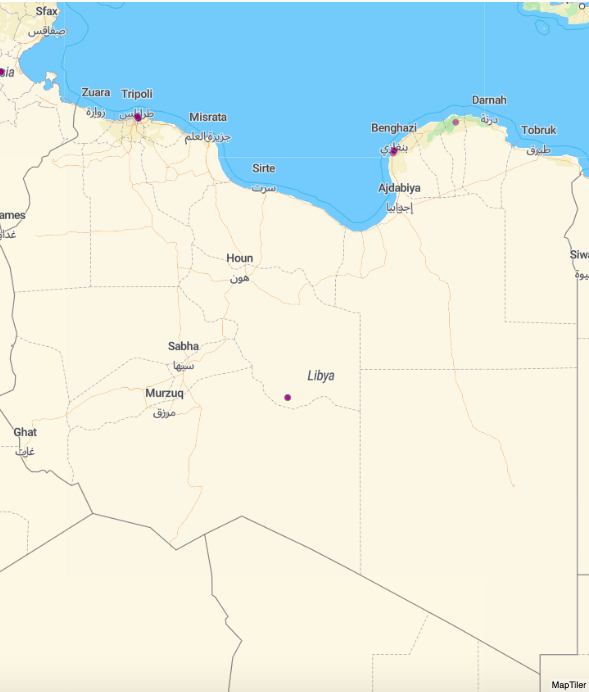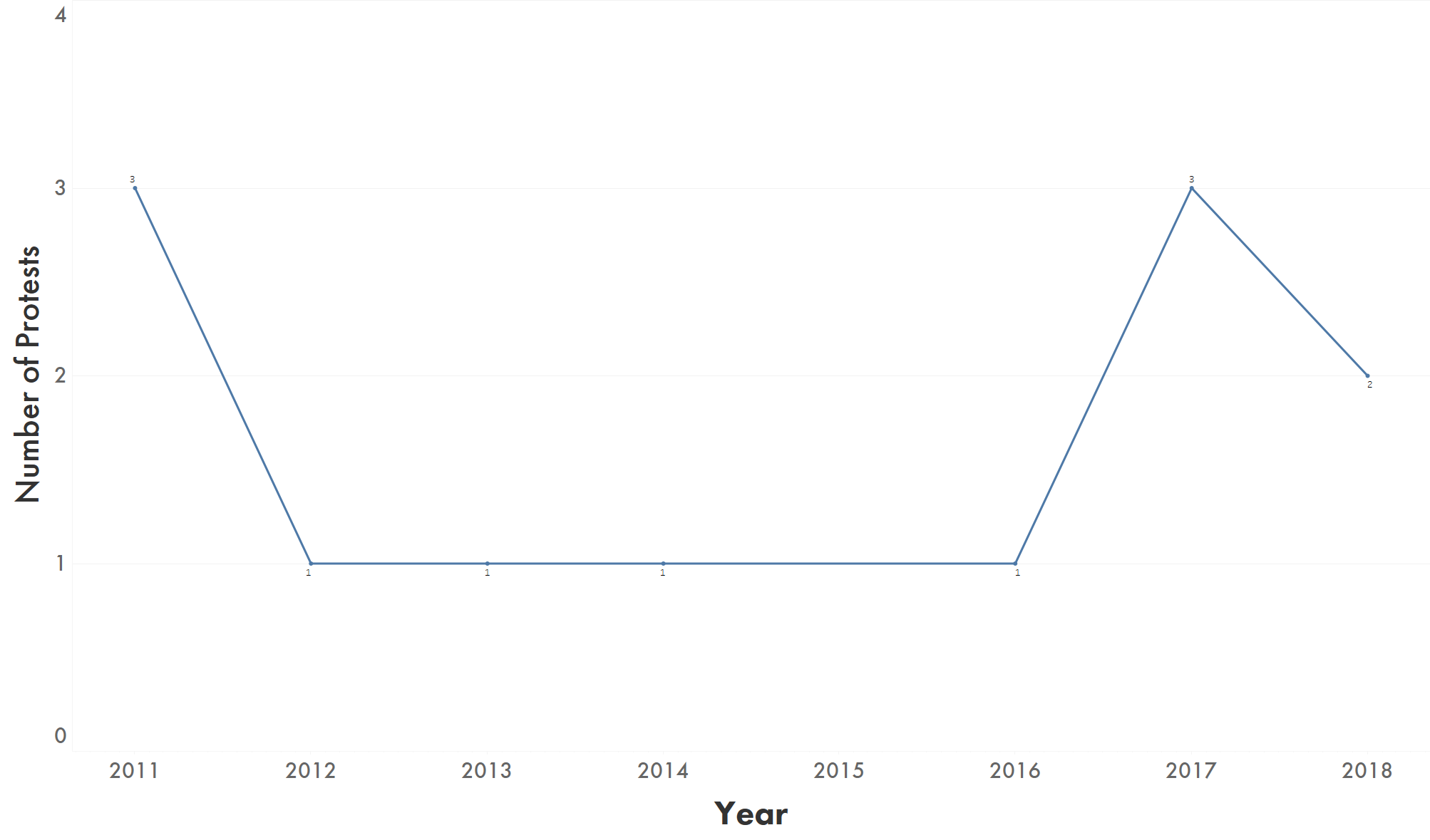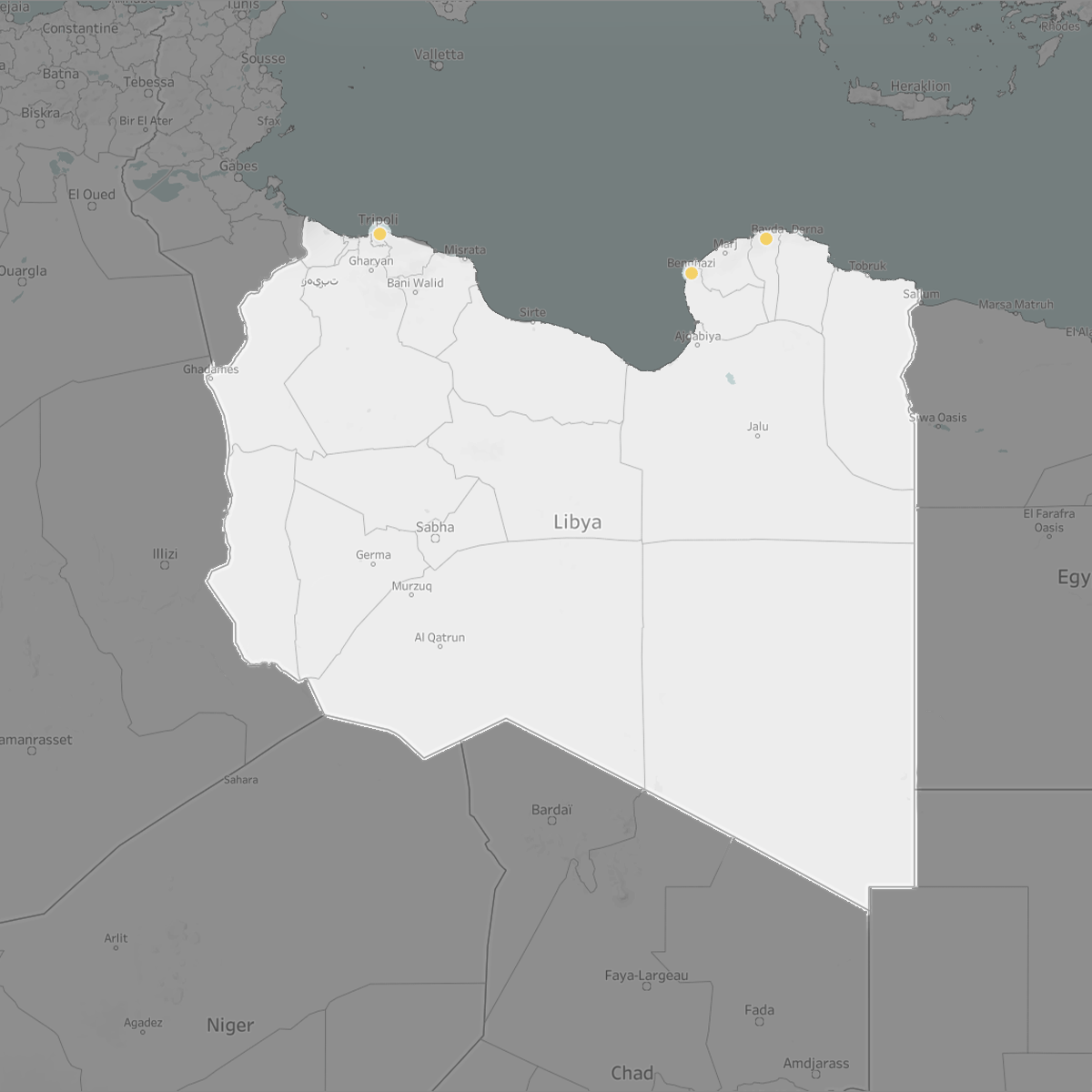Libya
Libya is a country of 6 million people. 1.1 million people live in the capital city, Tripoli. Most Libyans are descendants from Bedouin Arab tribes. Today about 60% of the population is under 20 years old. Most of Libya's GDP comes from oil production. Oil was discovered in 1959, and Libya has become one of the world's largest oil producers - this wealth has not been widely distributed, and most of the oil production is run by the state and the National Oil Company, which are both in contracts with other European oil companies. Libya also has large untapped natural gas reserves. Most of the country is unfit for agriculture, as the country is mostly barren plains of rock and sand. Water remains a big problem in Libya; the government made a 20$ billion-dollar human-made river scheme, planning to pump water at great expense. It is far from completion. For 42 years, the Libyan's government was run by Muammar Qaddafi, who overthrew the country's monarch in a military coup in 1969. Qaddafi claimed to run a socialist government for the people; in reality, he held all the power, assisted by 'revolutionary committees,' which enforced many human rights abuses ranging from arbitrary arrests to torture and disappearances. Qaddafi used Libyan oil wealth to incite a series of terrorist incidents culminating in bombing the 1988 Pan Am jet over Lockerbie, Scotland, which killed 270 people. His overthrow began in February 2011 following Arab Spring protests in Egypt and Tunisia. Many population protests against his regime in Benghazi grew into an armed insurrection that benefited from UN approved NATO protection. In August of 2011, Qaddafi was killed - under disputed circumstances. The rebels formed a National Transitional Council, and in July 2012, a 200 seat elected congress was established.

DATA VISUALIZATIONS


PROTESTS
Libya-May-2017
Tripoli, University of Tripoli
Students strike to protest the kidnapping of a second school staff members. Both students and teachers participate over what they say are "repeated security violations." (Primary Source)
Libya-February-2011
Al Bayda, Omar Al-Mukhtar University
Students protesting against the rule of Muammar Gaddafi. Mercenaries opened fire upon crowd, killing some students. (Primary Source)
Libya-August-2014
Tripoli, University of Tripoli
Protest on campus after a student arrived brandishing a pistol on campus. School closes over security fears. (Primary Source)
Libya-January-2012
Benghazi, National Transitional Council.
Students protest against the deputy head of the National Transitional Council (NTC) after 11 students were arrested for 'manhandling' its leaders. The National Transitional Council was the de facto government in Libya for ten months between 2011-2012. The precise location of the offices are not known, but these protest occurred in Benghazi. (Primary Source)
Libya-October-2017
, Technical University of Mombassa
School start delayed as General Teachers Union threaten a national strike. Teachers are demanding 100 percent increase in salary, health insurance, and against violence in schools. (Primary Source)
Libya-September-2016
,
University students across Libya campaign to have final exams postponed due to dangerous living environment, caused by outbreak of violence in Libya and poor studying conditions. (Primary Source)
Libya-February-2011
Benghazi,
Protests unleashed throughout Libya against dictator Moammar Gadahfi. Protests included mostly students. (Primary Source)
Libya-March-2018
Tripoli, Tripoli
Teachers throughout public schools in Tripoli strike. They are demanding better pay. 90% of schools shut down (Primary Source)
Libya-February-2011
Benghazi, Online
Student blogger talks about violence and fear. Protests happening throughout Libya in response to Muammar Gaddafi's dictatorship (Primary Source)
Libya-July-2018
Tripoli, University of Tripoli
Students protest GCSE examinations, complaining that the english examinations were too difficult, and they did not finish their curriculum (Primary Source)
Libya-October-2017
Benghazi, Benghazi University
Students held a silent protest at the campus to denounce the verbal and physical attacks made by university guards to students. In response to a severe beating by a guard onto a student. (Primary Source)
Libya-November-2013
Tripoli, Tripoli
Teachers strike in protest of the worsening economy. They also a blocked an oil refinery in Zawiya (Primary Source)